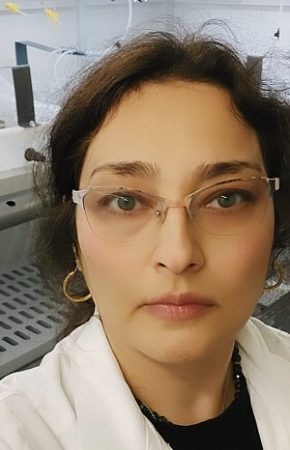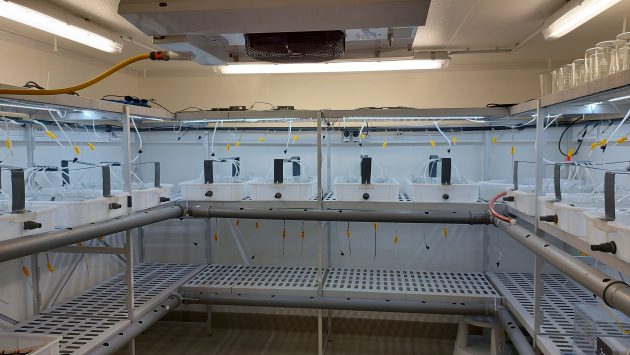
Share Her Story: Contributing to food sustainability
July 25, 2022
By
Maryam Farag
Meet Noushin Arfatahery, Ph.D., Freie Berlin University, who's a dedicated researcher, and aspires to work in environmental protection and food security.

Photo: Noushin Arfatahery.
Arfatahery is passionate about her Ph.D. research project, which is conducted in collaboration with the Wadden Sea Station of the Alfred Wegner Institute for Polar and Marine Research and the Charite Hospital.
Her project is about the emergence of antimicrobial resistance toward several conventional antibiotics that has triggered the search for antimicrobial agents from marine environments.
As Arfatahery describes, she investigated the antibacterial activity of sea cucumber extracts against bacteria. Currently, she evaluates experimentally bacterial resistance against oyster antimicrobial peptides (AMPs). She also tests how Vibrio bacteria primed by previous exposure to AMPs colonize oysters to investigate their resistance against AMPs in vitro and in vivo. In addition, she investigates the immunological responses in oysters and whether this colonization results in elevated mortality.
In conclusion, Arfatahery’s results suggest that the primary stimulation of V. splendidus led to immune priming in oysters when encountering the secondary challenge with V. splendidus. Also, the increased survival of oysters almost certainly by stimulating the immune system in hosts led to prevent vibriosis in the marine oyster.
“Significance in sea cucumber extract is an interesting candidate for the identification of new antimicrobials, however, comprehensive investigations are needed to separate and identify the active compounds from Holothuria leucospilota from the Persian Gulf.”
“I want to get involved in a position in this area because it will help me to better prepare for my goals: my long-term aspiration is to work in environmental protection and food security,” said Arfatahery.
 This has always been the primary goal of sustainable development policies, as Arfatahery describes, and accessibility of a sufficient amount of food production has always been emphasized as the primary basis of sustainable development and essential infrastructure for feeding coming generations.
This has always been the primary goal of sustainable development policies, as Arfatahery describes, and accessibility of a sufficient amount of food production has always been emphasized as the primary basis of sustainable development and essential infrastructure for feeding coming generations.
The increasing world population increases the need for sustainable food production, and the risk of famine and malnutrition will be an important factor resulting in poverty and hunger. Moreover, losses in natural resources water and soil will cause social and health problems.
“Seafood production is an important source of protein, and climate change has been largely ignored in that region,” Arfatahery notes.
“My long-term goal is to work in seafood production, to contribute to sustainable food production,” said Arfatahery. “I’m also planning to set up a trainee scheme for women of different levels of education to generate qualified and secure jobs, all in all, I’m determined to pass my knowledge to women around the world.”
Advertisement
- Kingfish Maine moves ahead as Jonesport rejects proposal to pause aquaculture projects
- Cooke Aquaculture appoints Philip Wiese as managing director





